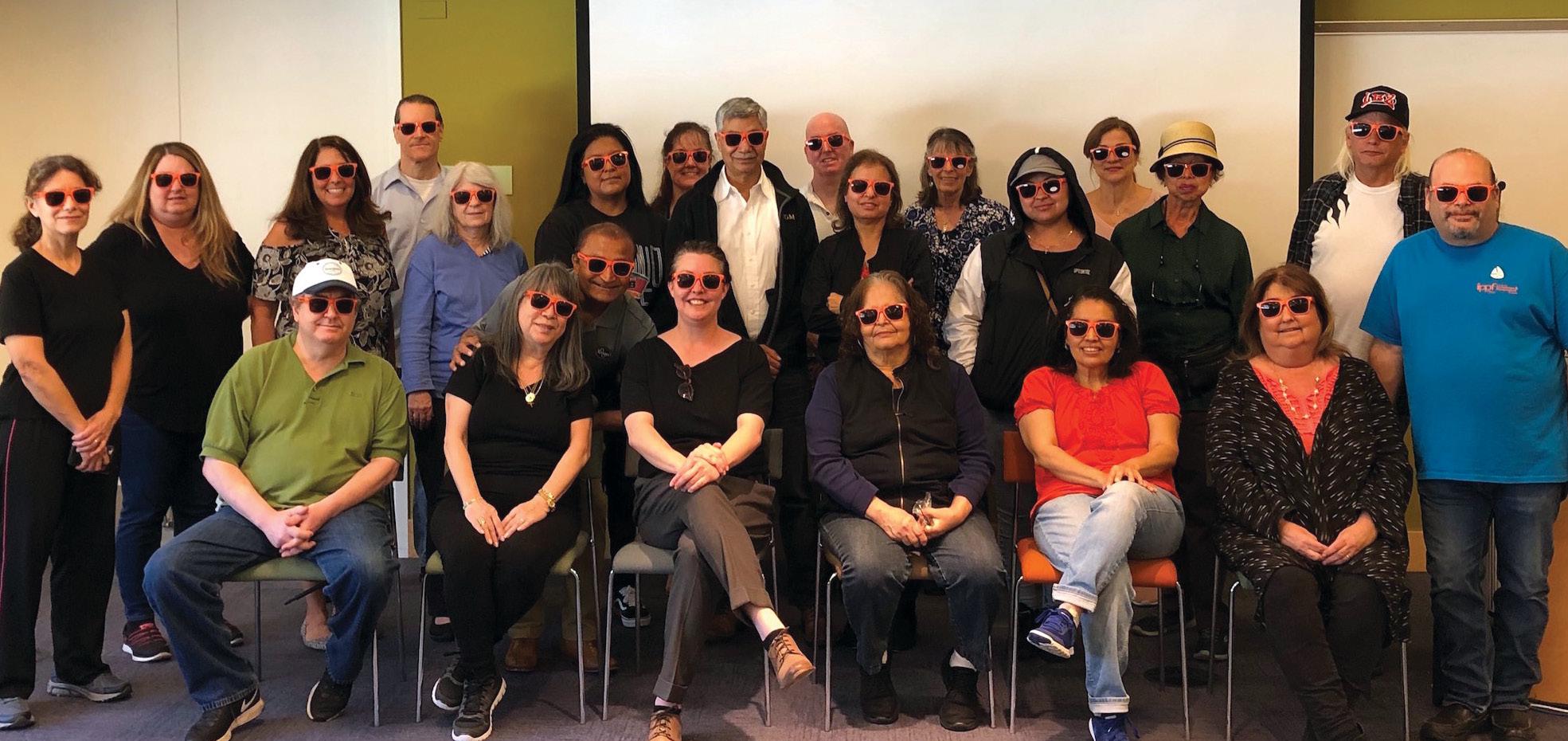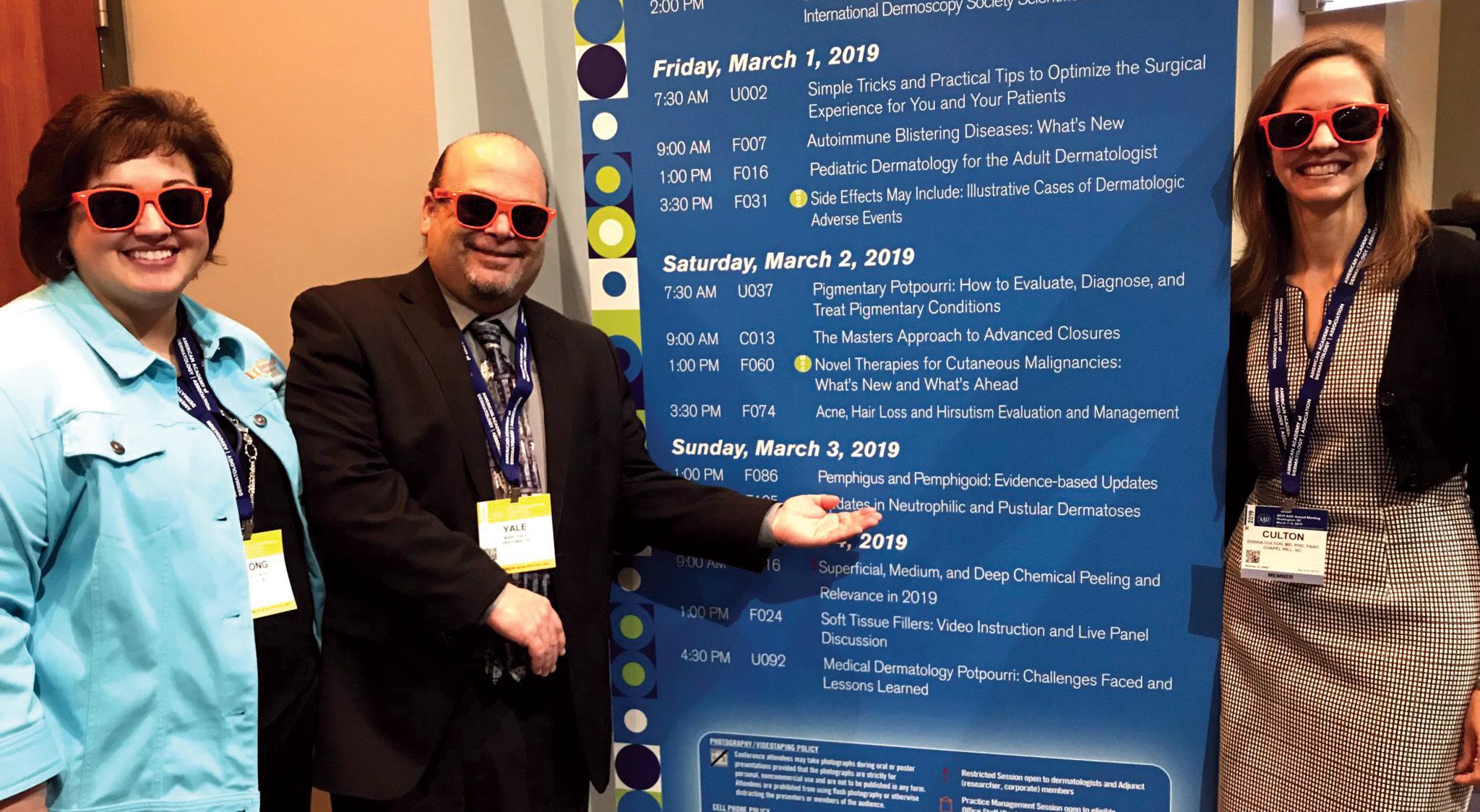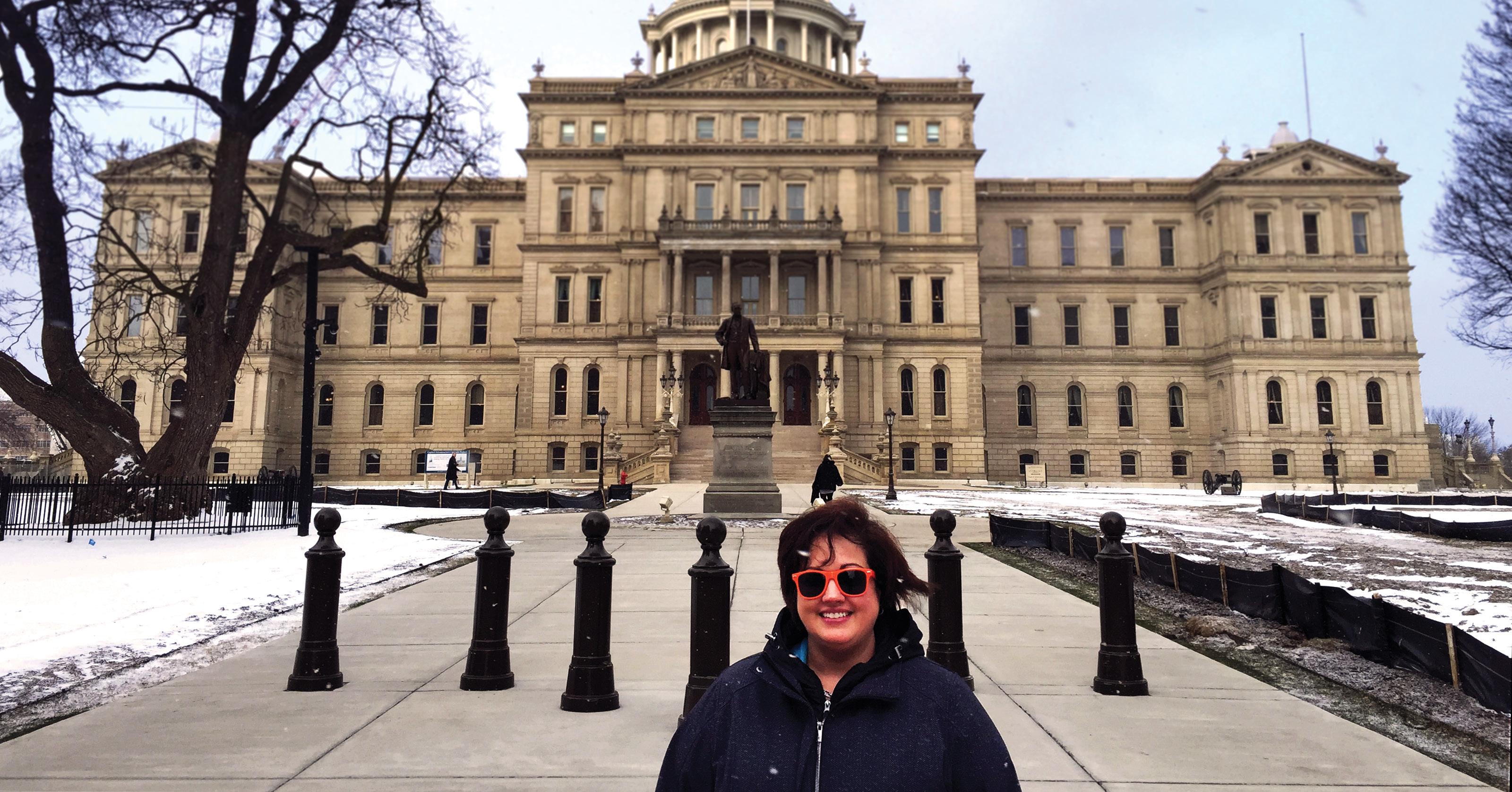
3 minute read
The IPPF Meets with the Centers for Medicare and Medicaid Services
On December 19th, the International Pemphigus and Pemphigoid Foundation (IPPF) and the American Academy of Dermatology Association (AADA) met with Jeet Guram, MD, MBA, who is the Senior Advisor to Seema Verma, the administrator of the Centers for Medicare and Medicaid Services. The purpose of the meeting was to share problems with drug compendia and highlight access to treatment issues related to both Medicare Part B and Part D. According to MJH Life Sciences, “drug compendia are defined as summaries of drug information that are compiled by experts who have reviewed clinical data on drugs. According to the Centers for Medicare and Medicaid Services (CMS), a compendium should include a summary of pharmacological characteristics for each drug/biological that may include dosage and recommended uses.”
In attendance at the meeting were Joerg Albrecht, chair of AADA’s Drug Transparency and Access Task Force; Marc Yale, IPPF Executive Director; and AADA staff; as well as representatives from the American Society of Transplantation, American Society of Clinical Oncology, American College of Rheumatology, American Gastroenterological Association, and the American Society for Mohs Surgery.
Advertisement
The meeting began with an overview of the problems with the compendia and how they impact access to treatments across multiple specialties. CMS’s reliance on the compendia is restricting the ability of physicians to treat orphan, rare, and even common diseases. These limitations prevent patients from getting medically necessary treatments. We explained how the compendia often deviate from the standard of care for treatment, or worse, how there is simply no treatment listed in the compendia for a disease. In some cases, a physician has to prescribe a more costly or less effective treatment. As a result of this barrier, a subsection of Medicare Part D beneficiaries does not have adequate drug coverage. Unfortunately, there is no exception process, and CMS was encouraged to consider developing one.
The lack of inclusion of necessary treatments in the compendia, the high costs resulting from barriers to lifesaving and life-enhancing drugs, and the lack of a process for exemptions, were discussed. CMS was very interested in these concerns and indicated a willingness to continue a dialogue and seek a solution.
During the meeting, I described the IPPF’s observation of an increasing number of pemphigus and pemphigoid patients who are experiencing issues related to the lack of inclusion of treatments in the compendia. Patients, and even medical facilities, reach out to the IPPF for help in accessing treatments for these diseases. We described a case in which a patient went through a legal battle for an entire year just to be told they still could not access the necessary treatment. It was also highlighted that there are access issues with both Medicare Part B and Part D.
Overall, the compendia are not keeping up with the rate at which science is progressing. There are breakthrough treatments patients should be able to access to improve their overall quality of life, or even increase their chances of survival. A process for exemptions could be a solution to this access issue. It was reiterated that finding a solution would meet the CMS administration’s goal of putting patients first.
If you are experiencing access issues with your Medicare coverage or other insurance, contact the IPPF at info@pemphigus.org for assistance. The IPPF advocates with, and on behalf of, the IPPF patient community with congressional representatives, regulators, and other support organizations to encourage legislation and policies that provide better healthcare.
Marc Yale was diagnosed in 2007 with cicatricial pemphigoid. In 2008, he joined the IPPF as a Peer Health Coach and was promoted to Executive Director in 2016. Marc currently resides in Ventura, California, with his wife Beth and daughter Hannah.









